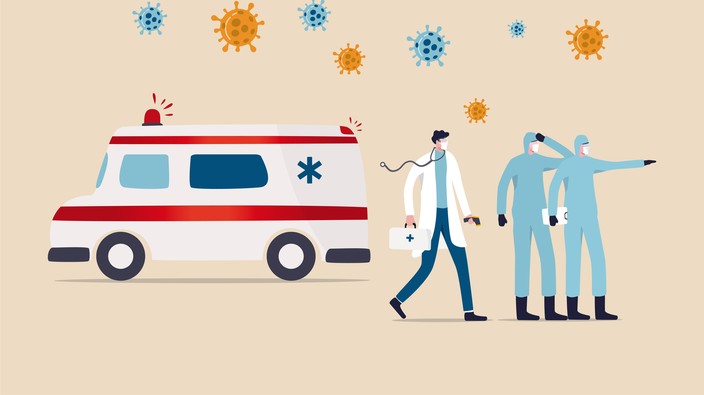in a press conference last week, ontario premier doug ford says the decision to delay procedures “weighed heavily on all of us.” cardiac and cancer patients may have to
wait several more weeks until outbreaks in long-term care homes and other congregate living settings stabilize, as its demand continues to be unpredictable.“this creates a lot of anxiety and is a very stressful situation for patients. for us, as physicians and healthcare providers, this is a lot of anxiety as well,” says delgado. “in my view, the fact that we’re not seeing many of these patients now means we’re going to start seeing many patients who will need attention. these includes the patients who are at home and don’t want to leave their homes, we will have to be able to handle all those patients as well.”he also adds that he worries about those who are not getting medical help because of stay-at-home rules. “my concern is also that because we are giving advice to patients to stay home, many cardiac patients are not coming to the hospital to seek attention when they are suffering from heart attacks or strokes,” he says.
patients with emergencies should not avoid hospitals out of fear
dr. victor tseng is an atlanta-based pulmonologist and critical care physician who first shared a
prediction of the four waves of the pandemic online. the ‘second wave’ is predicted to include resource restriction for urgent non-covid-19 patients. in a sombre echo of delgado’s concern, more emergency departments are seeing patients stay home out of fear of covid-19.tseng says monitoring stemi (major heart attacks) is a logical place to look in terms of monitoring the progression of the second wave because they are a common, extremely time-sensitive condition.“for every hour that treatment is delayed, cardiac function is further jeopardized and mortality worsens,” he says. likewise with time delayed on strokes. “for every hour that treatment is delayed, the risk of irreversible neurological damage increases. these are just two specific examples, but they serve as a barometer for the situation overall.”the fact that emergency departments all over the world is seeing a decline in stemi care is significant.there are already emerging stories of the
pandemic’s effect on people without covid-19. tseng describes seeing a patient who had a “very clear exacerbation” of his congestive heart failure recently who waited at home for a long time before coming to the hospital.“i was in the icu service last week and the patients i saw coming into the emergency room with non-covid disease were definitely sicker than anything i would have expected,” he says. “we’re seeing patients presenting later and later with severe exacerbation of underlying disease. they’re sicker when they get to the door.”in the u.s., where one’s health insurance is intimately tied with their employment status and
20.5 million americans have lost their jobs, it’s no wonder many people hesitate to treat their symptoms if a visit to the hospital can quickly add up to the hundreds or thousands. but canadians are also waiting too late to treat their symptoms.new research from the heart & stroke and canadian cardiovascular society shows ontario cardiac centres have seen almost a
30 per cent reduction in emergency department visits between march 16 to april 12, compared to the same month last year. vancouver coastal health has also seen approximately a 40 per cent drop in stemi patients during this time period.austria has seen a
significant decline in coronary syndrome admissions and warns of a “possible cardiac collateral damage caused by covid-19.” studies have shown spain has also seen a 40 per cent reduction in patients for stemi and the us has seen a 38 per cent drop. and earlier this year, researchers in china and hong kong found covid-19 caused
patients with major heart attacks to delay seeking care. this all has detrimental effects in the long term.“if you go to any city in the world, you will always see a certain rhythm of patients coming in with heart attacks, congestive heart failure, stroke, sepsis, or appendicitis,” says tseng.“across the board, there’s been a visible and noteworthy decrease in the prevalence of those in emergency departments. a lot of emergency rooms are empty, and while that seems reassuring at first, it’s actually kind of an ominous sign.”
diana duong is a writer and editor at healthing. find her on twitter @dianaduo.dduong@postmedia.comdon’t miss the latest on covid-19, reopening and life. subscribe to healthing’s daily newsletter covid life
 5 minute read
5 minute read









